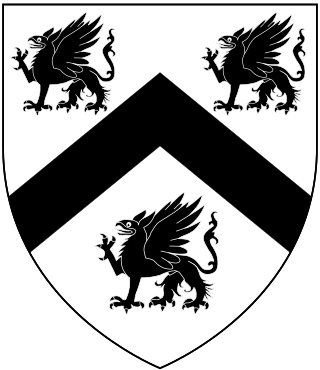Related Research Articles

Earl of Winchilsea is a title in the Peerage of England. It has been held by the Finch-Hatton family of Kent, and united with the title of Earl of Nottingham under a single holder since 1729.

Sir Robert Heath was an English judge and politician who sat in the House of Commons from 1621 to 1625.

John Finch, 1st Baron Finch was an English judge, and politician who sat in the House of Commons at various times between 1621 and 1629. He was Speaker of the House of Commons.

Sir Thomas Richardson of Honingham in Norfolk, was an English judge and politician who sat in the House of Commons from 1621 to 1622. He was Speaker of the House of Commons for this parliament. He was later Chief Justice of the Common Pleas and Chief Justice of the King's Bench.

Serjeant John Hoskins or Hoskyns was an English poet, scholar of Greek, lawyer, judge, and politician.
Sir Roger Twysden, 2nd Baronet, of Roydon Hall near East Peckham in Kent, was an English historian and politician who sat in the House of Commons at various times between 1625 and 1640.

Sir RanulphCrew(e) was an English judge and Chief Justice of the King's Bench.
Sir Thomas Moyle was a commissioner for Henry VIII in the dissolution of the monasteries, and Speaker of the House of Commons in the Parliament of England from 1542 to 1544.

Sir Thomas Crewe, of Stene, between Farthinghoe and Brackley in Northamptonshire, was an English Member of Parliament and lawyer, and served as Speaker of the House of Commons from 1623 to 1625.

Sir Heneage Finch was an English nobleman, lawyer, Member of Parliament, and politician who sat in the House of Commons at various times between 1607 and 1626. He was Speaker of the English House of Commons in 1626.

Thomas Finch, 2nd Earl of Winchilsea was an English peer and Member of Parliament.

Sir Moyle Finch, 1st Baronet JP was an English politician, knight, sheriff, and MP.

Sir Peter Warburton JP was a British judge. Born to Thomas Warburton and his wife Anne, Warburton attended Staple Inn before joining Lincoln's Inn on 2 May 1562. He was called to the Bar there in February 1572, and became a Bencher in 1582. A Justice of the Peace for Chester, he was recommended as a potential Member of Parliament for that seat, but after being rejected was instead elected for Newcastle-under-Lyme, later sitting for the City of Chester in the Parliaments of 1586, 1589, and 1597. In 1593 he became a Serjeant-at-Law, and on 24 November 1600 was made a Justice of the Common Pleas. As a Justice he was one of those who supported Sir Edward Coke's majority judgment in Dr. Bonham's Case, and he discharged his duties as "an ancient, reverend and learned judge" until his death in office on 7 September 1621.

Sir Thomas Finch was an English nobleman, knight, soldier, and military commander.
Richard Taylor was an English lawyer and politician who sat in the House of Commons from 1621 to 1629.
Sir Francis Ashley was an English lawyer and politician who sat in the House of Commons at various times between 1614 and 1625.
Francis Finch was an English lawyer and politician who sat in the House of Commons between 1624 and 1629.
Sir Ralph Whitfield (1588–1645) was an English lawyer, judge and landowner, who sat as a Member of Parliament and held several public offices.
Henry Sandys was an English politician, MP for Mitchell in 1625.
Sir Theophilus Finch, 2nd Baronet was an English nobleman and politician.
References
 This article incorporates text from a publication now in the public domain : "Finch, Henry (d.1625)". Dictionary of National Biography . London: Smith, Elder & Co. 1885–1900.
This article incorporates text from a publication now in the public domain : "Finch, Henry (d.1625)". Dictionary of National Biography . London: Smith, Elder & Co. 1885–1900.